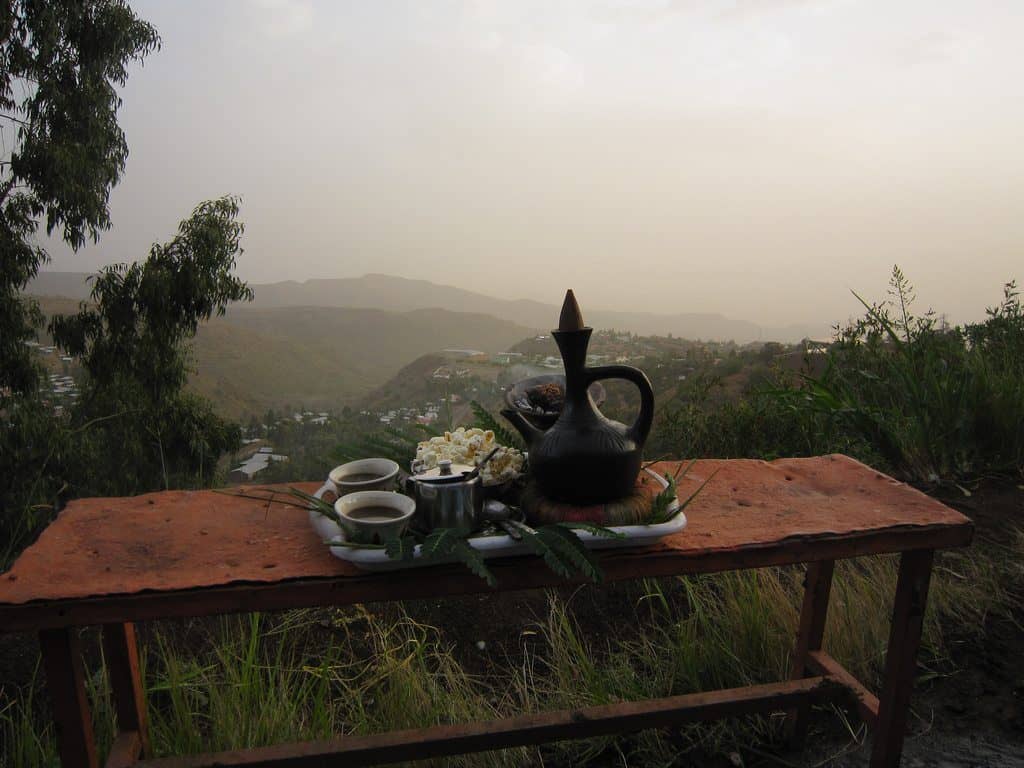Happy New Year, everyone! For those of us who partied a bit harder last night a good coffee might help.
One of the great mysteries of Africa is the horrible coffee you get in most places. Despite the fact that some African countries – Togo, Kenya, Tanzania and of course Ethiopia – are among the world’s leading coffee growers you’ll usually be served ghastly Nestlé granulate. I need my caffeine, so that didn’t stop me from ordering it wherever possible. But my heart jumped with delight when I found the odd real coffee.
Morocco is hit and miss: sometimes you find a true barista in the middle of nowhere who might even create a latte. In Bobo Dioulasso, Burkina Faso, you order Libyan coffee if you want the real deal (which is usually twice as expensive). In Togo, just a few miles across the border from Ghana, there is a monastery that grows and sells coffee – along with jack fruit and orange jam, biscuits, and fragrant oils. When you get to the Ugandan town of Kisoro, make sure to stop by the little café at the corner where you turn off the main road towards the Golden Monkey Guest House. A German lady runs the café. Not only does she serve great coffee, pancakes, and sandwiches, she’ll also gladly provide you with a lunch pack for your trek to the gorillas in Bwindi. There are a few cafés like that dotted across East Africa. And most of them are run by Germans.
The notable exception from the rule of horrible coffee in Africa is Ethiopia. Oh, Ethiopia! Your delicious coffee is one more reason to love you. While we were waiting for the bus to Moyale in Nairobi’s Eastleigh district, we sat in a tiny restaurant across the street from the bus office. The owner was from Ethiopia. Not only did she serve spaghetti bolognese, when it was time for coffee she pulled out a plastic bag with fresh beans, roasted them in a pan over the open fire, ground them by hand, and put the coffee into boiling water. And she wouldn’t have it any other way. Lucky for her she was working and living just across the street from the overland connection to Ethiopia.
In Ethiopia’s Highlands, most people will grow their own coffee. And you’ll see ladies like the one in Eastleigh anywhere – in restaurants, on the street, even in Internet cafés… They’ll roast and grind the coffee always fresh. Their work space will be lined with papyrus along the Nile or pine leaves or hay in other areas. The result of the coffee ceremony is traditionally either served just by the small cup (talk about coffee to go) or on a tray: a jug of coffee, little cups, sugar, smoking incents, and, oddly enough, popcorn.

